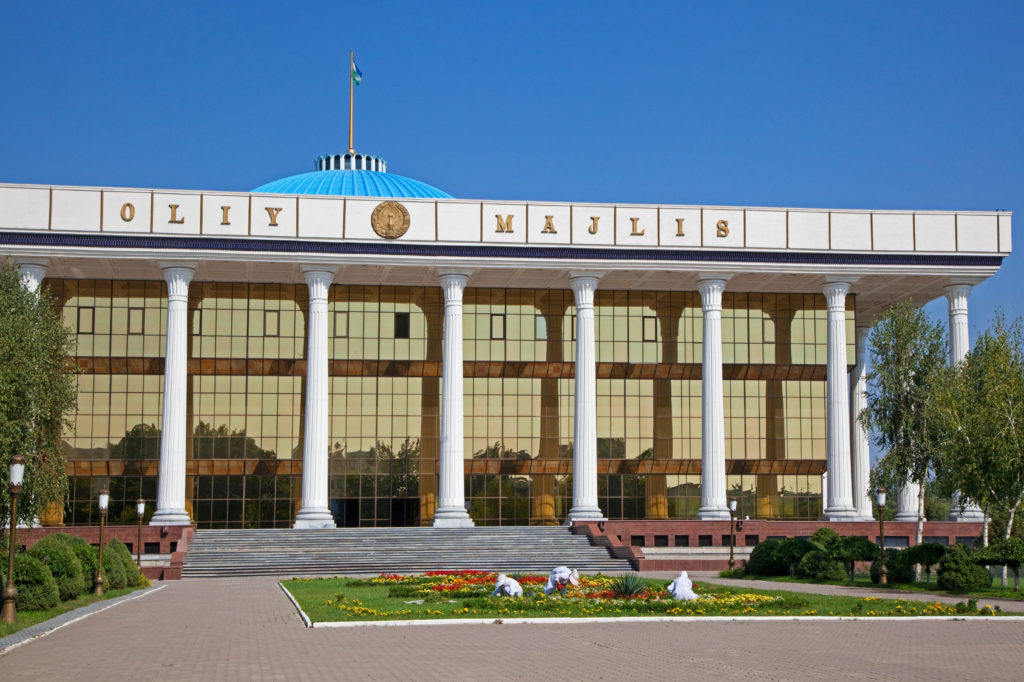By MUHAMMADSHARIF MAMATKULOV
TASHKENT
Uzbekistan is, at last, forging ahead with a project to revolutionise the financial system for the largest Muslim population in Central Asia with the potential to attract millions of dollars into the economy – the introduction of Islamic banking and finance instruments.
And the project, discussed for years with little progress, may now take shape as government officials and parliamentarians get down to a serious discussion on drafting a legal basis for the system.
The innovation, once it is brought to fruition, is another radical departure from past practice made possible by the advent of President Shavkat Mirziyoyev’s decidedly secular administration. He took over in late 2016 following the death of veteran leader Islam Karimov, who had run Uzbekistan with an iron fist for 27 years.
Along with Mirziyoyev’s ambiguous reforms to open up the country for foreign investments, he also tasked the country’s parliament to draw up a legal framework for Islamic banking five years ago.
Uzbek authorities and banking experts say current legislation contains no direct restrictions on implementing Islamic banking. But nor is there a legal basis to allow Islamic financial services to work, which could open the way for millions of dollars of investments to revive private business.
Islamic banking, also referred to as Islamic finance, refers to finance or banking activities that adhere to Islamic law which rules out interest payments and is founded on the principle of sharing of profit and loss. Islamic banks make a profit through equity participation, which requires a borrower to give the bank a share in their profits rather than paying interest.
It is most widely used in Saudi Arabia, Malaysia, the United Arab Emirates, Kuwait, Qatar and Turkey.
The latest catalyst to spur officials into action was the Islamic Development Bank’s (IsDB) annual meeting held in Tashkent – where the idea was avidly discussed on the sidelines.
Uzbek officials argued that the country needed first to prepare that legal framework and banks should fully earn the trust of their depositors — the principal reason many Uzbeks have chosen for decades to keep their savings under mattresses and pillows.
Islamic bank officials argued that the Central Asian country, a member of the IsDB since 2003, could benefit more if the Islamic financial instruments were introduced sooner and cited examples of countries – including Russia, with its own significant Muslim population which launched the mechanism successfully despite not being a member of the IsDB.
AROUND $10 BILLION “UNDER PILLOWS”
Uzbeks may be storing “around $10 billion under their pillows” because they lack trust in their banks, the Deputy Chairman of the Uzbek Senat, Sadik Safoev, said earlier this year, citing experts’ estimates.
People hoard their money or spend lavishly on weddings and cars, he told local media. But if these funds could be directed to economy and production, it is clear that it could have played the same role as the foreign investment that the country needs.
“Unfortunately, our banks are not fighting for the customer… The world experience shows that banks develop when they fight for the customer, when they compete for each client,” he said.
People lost trust in banks following more than two decades of problems to cash in savings or make withdrawals due to excessively restrictive banking rules. These are often implied “from above” rather than set down in statutes, to control cash flow to artificially hold up inflation.
OVERHAULING LAWS
The Deputy Minister of Economic Development and Poverty Reduction, Ilhom Norkulov, acknowledged during discussions at the IsDB summit that the parliament and the government had been working on mechanisms to introduce Islamic banking for several years.
But at issue was not so much a banking service, he said, but a complex system, which requires the development of its own approach.
The press service of Uzbekistan’s Central Bank told the Tribune that the country needed to amend and draft more than a dozen laws and legislative documents that would enable Uzbek commercial banks to provide Islamic financial services.
“These include Uzbekistan’s Civil Code, Tax Code, the Law on the Central Bank, the law on Banks and Banking, the law on Protection of Citizens’ Deposits in Banks,” the press service said.
Yuliy Yusupov, an independent economic analyst, said the benefits of introducing such a system could not be underestimated.
“The demand for Islamic banking in Uzbekistan is tremendous. There are many people, for example, entrepreneurs, who do not take loans from banks for religious reasons. So, the experts have been talking about the need to create conditions for the introduction of the principles of Islamic finance for a very long time. But everything rests on the regulatory framework,” Yusupov told The Tribune.
“I know that some initiators have been trying to break through this bureaucratic wall for several years. But it hasn’t worked out so far. I think the IsDB summit will finally give an impetus to the process and in the near future Islamic financing will spread in Uzbekistan. There is not so much that needs to be done, the legislation needs to be improved. Everything is achievable, and it will certainly work.”

